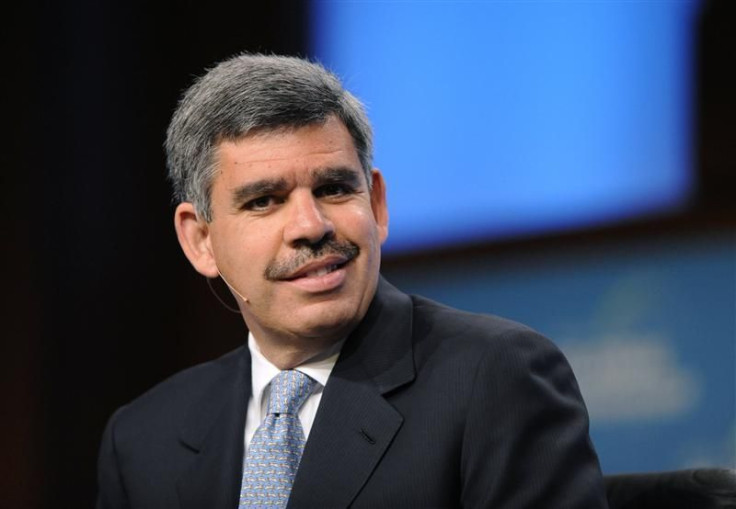PIMCO's Mohamad El-Erian: The Ideal Prime Minister for Egypt
ANALYSIS

Egypt's new leadership may be looking to the United States for its next prime minister. On Tuesday, it was reported that Mohamed El-Erian, the chief executive officer of Pacific Investment Management Co., or PIMCO, was being considered for the role.
Like newly elected president Mohammad Mursi and Mohamed ElBaradei, a presidential candidate and one of the most powerful voices in Egyptian politics, El-Erian is a Western-educated technocrat, and he would fit well with the nation's post-revolution government. His financial background, which not only includes co-founding PIMCO but also two years as president and CEO of Harvard Management Company, would certainly be beneficial to an Egypt seeking to stabilize its economy and convince the outside world that its government is not stocked with Islamic militants.
El-Erian has said that he is not interested in the job, nor has he even been been approached formally or expect to be approached about the job. There are many more qualified candidates than me, he told Bloomberg on Tuesday. At this critical time in Egypt's history, it is important that candidates include those who have been living in Egypt and who have participated in person in Egypt's revolutionary process.
Still, according to CNBC, the local Egyptian news outlets that first floated the PIMCO executive's name are still busy arguing El-Erian's political merits. Since the start of the revolution that toppled dictator Hosni Mubarak, El-Erian has been a vocal and eloquent supporter of Egypt's journey toward democracy. While he may be staying out of Cairo, the Cambridge-educated intellectual does have concrete ideas for the government on how to fix Egypt's economy.
Writing for the Cairo Review of Global Affairs, El-Erian demonstrated his elevated grasp of the situation 7,600 miles away from his home in California.
Post-revolutionary political leaderships ... did not have the organization and standing to ... urge citizens to move forward by 'forgiving but not forgetting the past,' he said, quoting Nelson Mandela, while high income and wealth inequality turned Egypt's poor economic conditions into worrisome social problems.
More importantly, he has thought of ways for Egypt to decisively ... address its mounting economic and financial challenges, which includes making the political process more open and removing impediments that are preventing the nation from returning to pre-revolutionary production and employment levels.
It's worth noting that Mohamed El-Erian -- not to be confused with Essam el-Erian, the vice chairman of Muslim Brotherhood's political arm, the Freedom and Justice Party, who frequently makes the news in Egypt -- would not have been allowed to run for President of Egypt because he was born in New York, although he lived in Egypt as a child. Nonetheless, his background as an international scholar, advisor to institutions such as the Kuwaiti central bank and his enthusiasm for gender equality would have made him a viable and qualified candidate.
Foreign Policy magazine has named him one of the Top 100 Global Thinkers for the past three consecutive years.
But all things considered, the role of prime minister is better suited for El-Erian. In Egypt, the prime minister is the head of government, an inward looking managerial position that includes running the economy. Alongside co-founder Bill Gross, El-Erian has turned PIMCO into the undisputed champion of bond investing with $1.77 trillion of assets under management, and he has proven himself as someone who understands the new reality of the global economy. His decisions in business have been made with pragmatism and growth in mind, both of which are traits desperately needed in Egypt at the moment.
© Copyright IBTimes 2024. All rights reserved.











